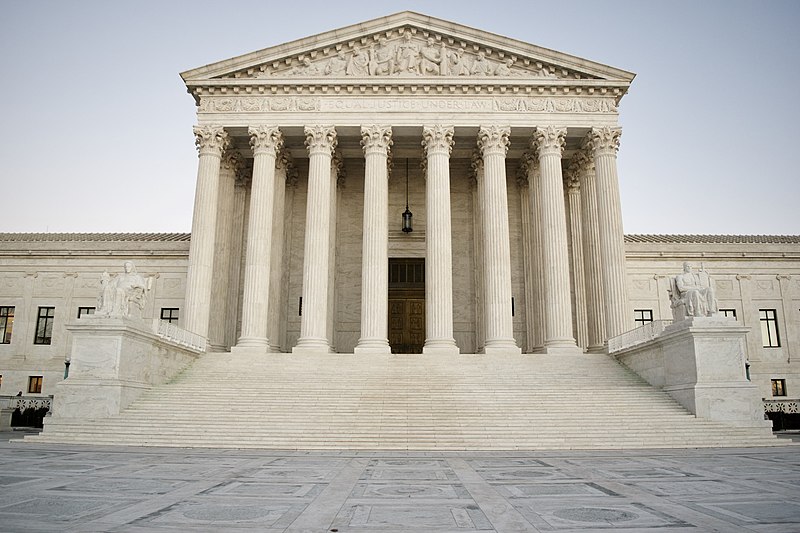WASHINGTON, February 21, 2023 — The U.S. Supreme Court today denied the Wikimedia Foundation’s petition for review of its legal challenge to the National Security Agency’s (NSA) “Upstream” surveillance program. Under this program, the NSA systematically searches the contents of internet traffic entering and leaving the United States, including Americans’ private emails, messages, and web communications. The Supreme Court’s denial leaves in place a divided ruling from the U.S. Court of Appeals for the Fourth Circuit, which dismissed Wikimedia’s case based on the government’s assertion of the “state secrets privilege.”
“The Supreme Court’s refusal to grant our petition strikes a blow against an individual’s right to privacy and freedom of expression — two cornerstones of our society and the building blocks of Wikipedia,” said James Buatti, legal director at the Wikimedia Foundation. “We will continue to champion everyone’s right to free knowledge, and urge Congress to take on the issue of mass surveillance as it evaluates whether to reauthorize Section 702 later this year.”
In its petition, the Wikimedia Foundation, the nonprofit that operates Wikipedia and other Wikimedia free knowledge projects, argued that its challenge should be allowed to proceed, despite the government’s sweeping invocation of “state secrets.” This privilege allows the government to withhold information in legal proceedings if disclosure would harm national security. Wikimedia sought to move forward in the case based on the wealth of public information about the breadth and operation of Upstream surveillance, including numerous official disclosures by the government itself.
The American Civil Liberties Union, the Knight First Amendment Institute at Columbia University, and the law firm Cooley LLP represented the Wikimedia Foundation in the litigation.
Upstream surveillance is conducted under Section 702 of the Foreign Intelligence Surveillance Act (FISA), which permits the government to intercept Americans’ international communications without a warrant, so long as it is targeting individuals located outside the U.S. for foreign intelligence purposes. Section 702 will expire later this year unless it is reauthorized by Congress.
In the course of this surveillance, both U.S. residents and individuals located outside the U.S. are impacted. The NSA copies and combs through vast amounts of internet traffic, including private data showing what millions of people around the world are browsing online, from communications with friends and family to reading and editing knowledge on Wikipedia and other Wikimedia projects. This government surveillance has had a measurable chilling effect on Wikipedia users, with research documenting a drop in traffic to Wikipedia articles on sensitive topics, following public revelations about the NSA’s mass surveillance in 2013.
“The Supreme Court let secrecy prevail today, at immense cost to Americans’ privacy,” said Patrick Toomey, deputy director of the ACLU’s National Security Project. “We depend on the courts to hold the government to account, especially when it wields powerful new technologies to peer into our lives like never before. But the Supreme Court has again allowed the executive branch to hide abuses behind unjustifiable claims of secrecy. It is now up to Congress to insist on landmark reforms that will safeguard Americans in the face of the NSA’s mass spying programs.”
“This decision is a blow to the rule of law,” said Alex Abdo, litigation director of the Knight First Amendment Institute at Columbia University. “The government has now succeeded in insulating from public judicial review one of the most sweeping surveillance programs ever enacted. If the courts are unwilling to hear Wikimedia’s challenge, then Congress must step in to protect Americans’ privacy by reining in the NSA’s mass surveillance of the internet.”
The Wikimedia Foundation, which filed the case alongside eight other plaintiffs, sued the NSA in 2015 to protect the rights of Wikipedia readers, editors, and internet users globally. Lawyers representing the Wikimedia Foundation in the litigation include Patrick Toomey, Ashley Gorski, and Sarah Taitz for the American Civil Liberties Union; Alex Abdo and Jameel Jaffer for the Knight First Amendment Institute at Columbia University; and Ben Kleine, Aarti Reddy, and Maximilian Sladek de la Cal from the law firm Cooley LLP. Wikimedia v. NSA is a part of the ACLU’s Joan and Irwin Jacobs Supreme Court Docket.
. . .
This press release can be found online: www.aclu.org/press-releases/u-s-supreme-court-declines-to-hear-wikimedia-foundations-challenge-to-nsa-mass-surveillance
For more information about the case:
https://knightcolumbia.org/cases/wikimedia-v-nsa
https://www.aclu.org/cases/wikimedia-v-nsa-challenge-upstream-surveillance-under-fisa-amendments-act
. . .
About the ACLU
For more than 100 years, the ACLU has worked in courts, legislatures, and communities to protect the constitutional rights of all people. With a nationwide network of offices and millions of members and supporters, the ACLU takes on the toughest civil liberties fights in pursuit of liberty and justice for all. https://www.aclu.org
About the Knight First Amendment Institute at Columbia University
The Knight First Amendment Institute defends the freedoms of speech and the press in the digital age through strategic litigation, research, and public education. It promotes a system of free expression that is open and inclusive, that broadens and elevates public discourse, and that fosters creativity, accountability, and effective self-government. www.knightcolumbia.org
About the Wikimedia Foundation
The Wikimedia Foundation is the nonprofit organization that operates Wikipedia and the other Wikimedia free knowledge projects. Our vision is a world in which every single human can freely share in the sum of all knowledge. We believe that everyone has the potential to contribute something to our shared knowledge, and that everyone should be able to access that knowledge freely. We host Wikipedia and the Wikimedia projects, build software experiences for reading, contributing, and sharing Wikimedia content, support the volunteer communities and partners who make Wikimedia possible, and advocate for policies that enable Wikimedia and free knowledge to thrive. The Wikimedia Foundation is a United States 501(c)(3) tax-exempt organization with offices in San Francisco, California, USA. wikimediafoundation.org
. . .
Contacts:
Lorraine Kenny, Knight First Amendment Institute, lorraine.kenny@knightcolumbia.org
Allegra Harpootlian, American Civil Liberties Union, aharpootlian@aclu.org
Laura Pulecio Duarte, Wikimedia Foundation, press@wikimedia.org

